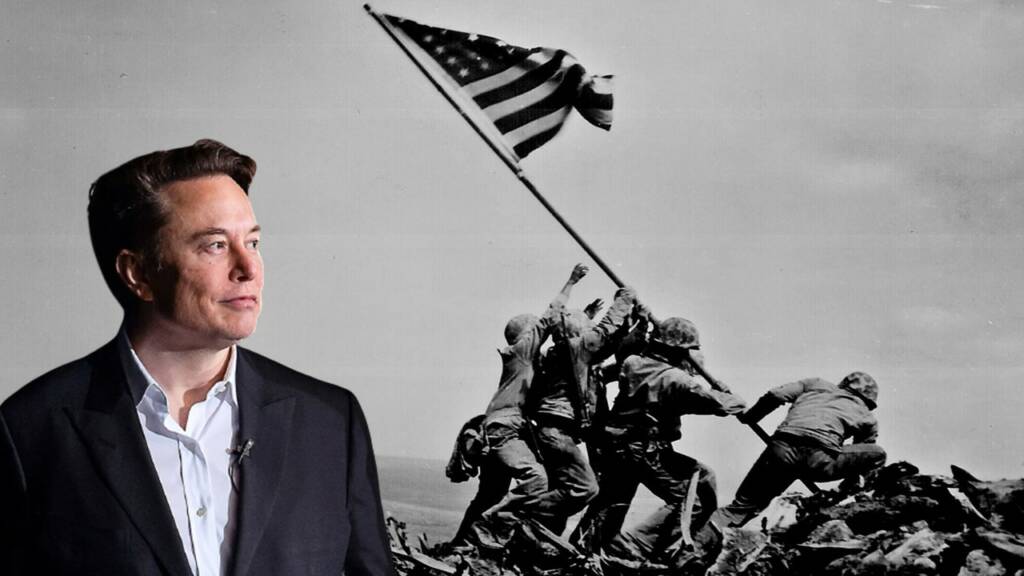Elon Musk, a prominent entrepreneur and innovator, recently delved into a historical analysis of America’s role during and after World War II (WWII). In a time where anti-American sentiments seem to be gaining ground, Musk’s reflections offer a contrary viewpoint, emphasizing America’s acts of kindness and restraint in a period marked by global upheaval.
The Current Wave of Anti-American Sentiments
There’s an observable surge in anti-American sentiments within the United States, partly spurred by various groups with differing political and ideological stances. Notably, pro-Hamas/pro-Palestinian activists and others critical of U.S. policies paint the country as a malevolent force. Such perceptions contribute significantly to the narrative of the U.S. as a historical and contemporary antagonist in world affairs.
Musk’s Historical Narrative
In an interview with Lex Fridman, Elon Musk presented a narrative focusing on America’s actions during and after WWII:
Post-WWII Opportunities and Choices: Elon Musk highlighted that the U.S., with its nuclear arsenal and unparalleled military might, had the opportunity to assert global dominance. Instead, the U.S. chose a path of aid and reconstruction.
Reconstruction Efforts: The U.S.’s role in rebuilding Europe and Japan stands out in Musk’s narrative. He characterizes these efforts as unusual and almost unprecedented in global history, signifying America’s benevolence.
Berlin Airlift and POW Treatment: The Berlin Airlift is cited as a notable act of kindness. Additionally, Elon Musk notes the humane treatment of POWs by American forces, expressing a preference for being a POW under American custody, if ever in such a situation.
Analysis of Musk’s Perspective
America’s Choice of Reconstruction Over Dominance: Musk’s emphasis on America’s decision not to use its nuclear arsenal for global domination reflects a conscious choice towards reconstruction and aid, rather than expansionism.
Humane Treatment of POWs: The treatment of German POWs by the U.S., often in better conditions compared to other nations, is highlighted as a testament to American compassion.
Contrasting with Axis Powers and Soviets: Elon Musk draws a stark contrast between the U.S.’s approach and that of the Axis Powers and the Soviet Union, who often mistreated and brutalized POWs.
Critique of the ‘Woke Outrage Mob’: Elon Musk criticizes the narrative of the ‘woke outrage mob,’ suggesting they often ignore historical context, preferring to paint America consistently as an antagonist.
Expanding the Context
While Musk’s perspective sheds light on certain positive aspects of America’s role, it is crucial to view this within a broader historical context:
Global Political Dynamics: Post-WWII, the U.S. was not only driven by benevolence but also by strategic interests, particularly in countering Soviet influence during the Cold War.
Complexities of Historical Narratives: Musk’s viewpoint, while highlighting America’s positive actions, may not fully encapsulate the complexities and nuances of global politics and the varied motivations behind America’s decisions.
The Role of Ideological Narratives: The current anti-American sentiments and Musk’s contrasting narrative both stem from broader ideological underpinnings. It’s essential to recognize these narratives within their respective ideological frameworks to understand their origins and impacts.
Also Read: Elon Musk’s avenge from American media
Conclusion: A Call for Balanced Historical Education
Musk’s insights challenge prevailing negative narratives and call for a more nuanced understanding of America’s historical role. They underscore the importance of incorporating a broad and balanced perspective in historical education. Musk’s narrative, while focusing on the positive aspects of American intervention and aid post-WWII, also serves as a reminder of the complexities of historical events.
Musk’s comments not only offer a counterpoint to the prevalent anti-American sentiments but also highlight the need for a comprehensive and balanced approach to understanding America’s role in global history. This perspective is crucial for current and future generations to form a well-rounded understanding of historical events and their long-term implications.
